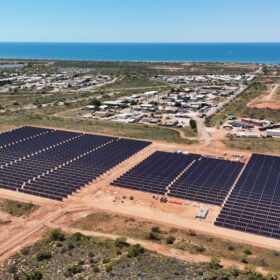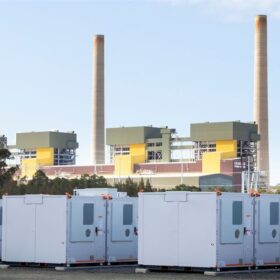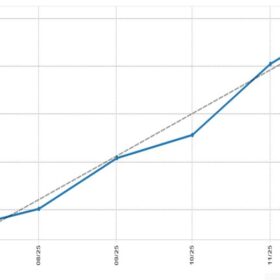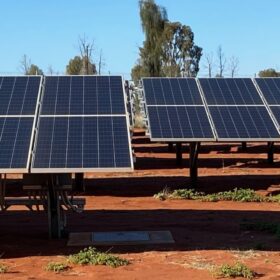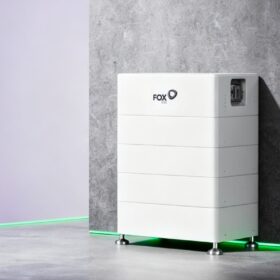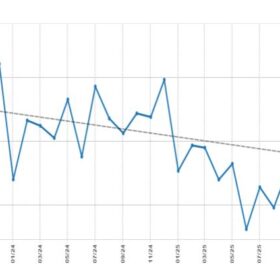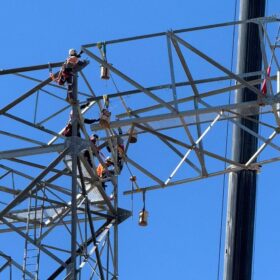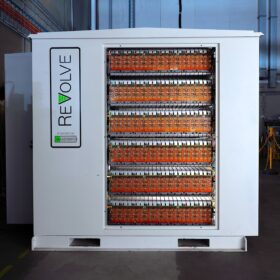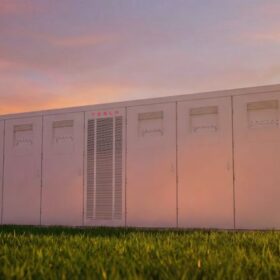Pacific Energy advances plans to power remote WA town with renewables
Plans to generate up to 80% of the Western Australia coastal town of Exmouth’s power from renewable energy sources are progressing well with all 16,700 PV panels installed at a new 9.6 MW solar farm.
Origin flicks operational switch on Australia’s biggest approved battery
The first stage of the biggest approved battery project in Australia is now fully operational with Origin Energy announcing the initial stage of the 700 MW / 3,160 MWh battery energy storage system being built next to its Eraring coal-fired generator in New South Wales has commenced commercial operations.
Home battery uptake continues to climb
More than 1.2 GWh of new behind-the-meter energy storage capacity was installed across Australia last month as households and businesses sought to take advantage of the federal government’s revised $7.2 billion Cheaper Home Batteries Program.
Pilot opts for hybrid project over standalone solar
Oil and gas explorer Pilot Energy has expanded its renewables ambitions, teaming with Hong Kong-headquartered SN Energy Group to jointly develop a hybrid solar and battery energy storage project on land in Western Australia previously earmarked for a 376 MW solar farm.
Fox trots out stackable battery system for residential, commercial applications
Chinese manufacturer Fox ESS has launched into the Australian market a 5.99 kWh capacity modular battery energy storage system that can be scaled up to 83.86 kWh per stack.
Rooftop solar installs rise as households turn to bigger systems
Australia’s rooftop solar market climbed by 22% in the past month with the latest data revealing that 334 MW of small-scale PV capacity was installed on household and business roofs across the country in December 2025.
Key transmission project reaches major construction milestone
Australia’s largest energy transmission project has reached a new milestone with the last of more than 1,500 steel towers constructed along the 700-kilometre New South Wales stretch of the EnergyConnect development that links the state’s energy grid with those in Victoria and South Australia.
WA backs Traditional Owners’ 5 GW green energy parks target
The Western Australia government has committed $2.7 million to support a Traditional Owner group in its bid to develop solar and battery energy storage projects with up to 5 GW of capacity in the state’s Pilbara region.
Carmaker uses repurposed EV batteries to help power production plant
Repurposed electric vehicle batteries have been used for the energy storage component of a solar and battery project that is now helping power operations at carmaker Nissan Australia’s aluminium casting plant in Victoria
Neoen to tap new Telsa tech for South Australian battery project
Neoen Australia has launched construction of its third big battery in less than 90 days, helping accelerate the nation’s energy transition with 20 GW of utility scale solar, wind, gas, batteries and pumped hydro now either commissioning or under construction across the National Electricity Market.
